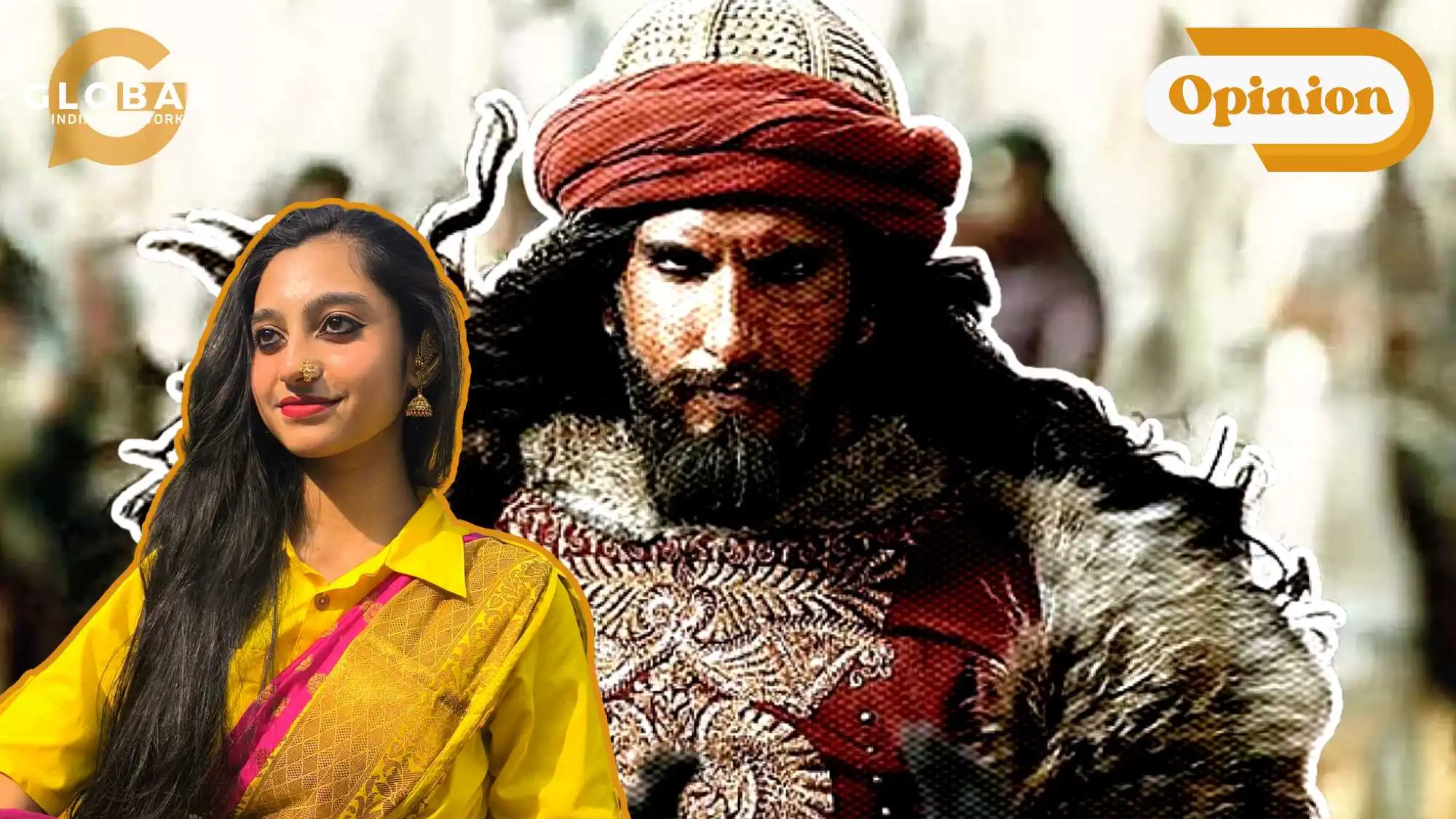Jab aasmaan aag barsaiga… Alauddin pighle ga”- Khilji.
Alauddin Khilji, one of the most feared rulers, ever ruled. The story of Alauddin Khilji and Padmavati is not one tale, but two —one written by the scribes, the other with bone-chilling feminine rage. Between them lies the paradox of history and its duty to record fact, yet its tendency to preserve myth. To approach this episode as a philosopher of history is to look not only at what may have happened, but also to reveal what hides behind the masquerade of skin.
Sanjay Leela Bhansali, in his film “Padmavat”, portrayed him as gentle as arsenic in tea, which doesn’t dust sugar on poison, but surely enhances the taste of it. Khilji’s reign, though draped in the cloak of cruelty, was not without its glimmers of iron-wrought brilliance. He stood like a fortress against the Mongol tide, a bulwark that refused to bend even when the fiercest storm rattled the northern frontiers. His hand, though heavy, steadied the trembling scales of trade by chaining the wild horse of inflation; he made grain, cloth, and salt march in disciplined rows, affordable even to the humblest soldier.
Like a blacksmith, he hammered his nobles into submission, melting their pride and recasting them into wooden puppets of the crown. The marketplace, once a jungle of greed, became a well-tended orchard under his sharp-eyed watch, and the land, measured and taxed with precision, no longer slipped like sand through corrupt fingers. His empire stretched southward like a river breaking new banks. Malik Kafur carried his will deep into the Deccan.
Rani Padmavti, on the other hand, was no predictable grace but a cipher written in fire and the subtle absence of it. Her presence was akin to a mysterious riddle- less jewel, more flint. Let me pick up one of the most powerful word exchanges that occurred between the queen and the spiritual preceptor of the king:
“What is more important, beauty or skill?”. She answered that skill is greater, for beauty lies only in the eyes of the beholder. She explained, “Some worship Lord Shiva even in a stone, while others see only a stone in a statue of Him.” With this, she made it clear that true value is not in outward charm but in the perception and ability that endures.
He asked her to define existence in just three words. Without hesitation, she replied, “Amrit, Prem, Tyaag” (elixir, love, and sacrifice).
He pressed further, “What is love?”
“A tear of joy falling from God’s eye.”
“What are tears?”
“The thin line between sorrow and happiness.”
“And what is happiness?”
“An illusion.”
“Which is the most difficult moment in life?”
“Awaiting results after examination.”
“And the biggest gift?”
“Blessings.”
Hence proving her distinctly eloquent mind. Her wit was coiled like smoke in a locked chamber, invisible at first, until it filled the lungs of her adversaries and made them cough on their own arrogance. To her people, she was marrow, binding their bones with courage when walls trembled. To her foes, she was not beauty but dissonance- a note out of key that made their entire music collapse. Thus becoming the greatest Nayaab cheez (precious thing) that Khilji was desperate to own.

In the latter half of the story, we find how the court priest, Raghav Chetan, turned into a rotten apple. I threw a stone into a pond and watched how it formed the waves and disrupted the peace of the fishes nearby. It reminded me of him. Khilji, living miles away from Singhal, would’ve had no convenient way of knowing about the queen, only if it wasn’t the so-called “Raajguru”, who quenched his thirst of revenge from Raja Ratan Singh, who made him leave the city for his cleaner than the mud act.
In one of the scenes, we find Khilji assassinating his father-in-law to get hold of the crown. His imprudent and callous personality catches our irides when his male chauvinism smears on his wife. She exclaims bluntly that there is nothing interesting about the crown he is wearing, for she has seen it in her father’s head for many years.
These words, fueling his evil chivalry, asserted dominance upon her by saying “Ye Taj hae hi bewafa, sar badalta rehta hae. (This crown itself is faithless. It changes its head again and again)” and then thrusting the taj over her head, and closing her eyes. The Taj, being larger than her head, reached her nose, which I interpreted as a reminder, reminding her where she belonged —under his rule.
The act is also deeply theatrical. He stages his dominance not only over the throne but over his wife’s perception, making her literally unable to see. It’s as though he is declaring that in his empire, truth, morality, and even a voice must be blinded beneath the weight of his crown, thus tightening his hold over any Nayaab cheeez (Precious thing) that existed under his visual cognition.
The actual history inscribed itself when his gaze dawned upon the princess of the land of pearls. His blood thirsty patience broke the records of the levels of “normality” we find in obsessive humans. Spending months in a deserted land, without the basic amenities, away from the comfort of his palace, just to get hold of what he desired, Khilji really taught that inexorable passion can turn even royalty to austerity.
But what did it conclude with? Jauhar. His failure in achieving his crowning wish. Was he incompetent? No. Was he weak? No. Was he impatient? No. Did he not try? No. So why did he lose? Because he tried to grip the pious fire of Shakti, he tried to compete with the sacred rage of femininity. No matter how vast the dominion one amasses, or how invincible the Asura appears in his arrogance, his fate remains sealed before the eternal power of Maa Durga. For every empire of cruelty is but a momentary stand, and in the presence of the Divine Mother, the doom of evil is not a matter of chance but of cosmic certainty.
“Jab aasmaan aag barsaiga… Alauddin pighle ga”, the sky rained lava, and finally Alauddin pighla.

Let us know your thoughts. If you have burning thoughts or opinions to express, please feel free to reach out to us at larra@globalindiannetwork.com.









